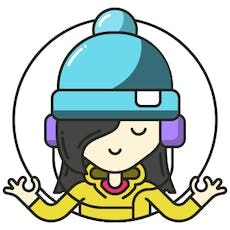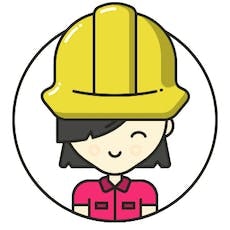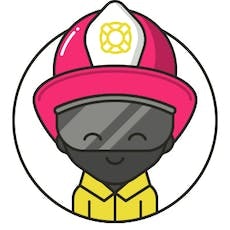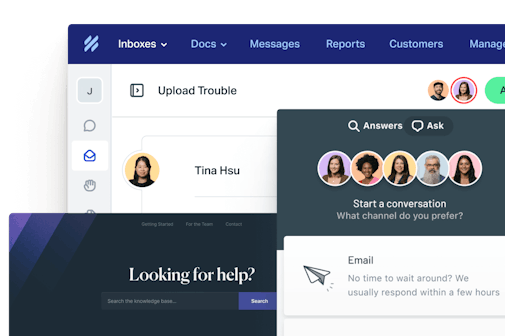It’s the first of the month already, and you know what that means: Reporting.
Time to put down the coffee, hit your help desk's reports tab, crack out the spreadsheets, and make some sweet charts.
And there it is, right at the top of the list, the same name you see month after month: your “Most Productive Agent.” You know what’s coming before your boss even says it...
“Gee, wouldn’t it be great if we could just clone Jessie!”
But would a team made up of five “Jessies” really be the Ultimate Support Machine? When your view of a team is filtered through a spreadsheet, it looks like an obvious win. If you replaced those people helping fewer customers per month with people who can help more, everyone wins.
In the neat and ordered world of Excel, that makes sense, but reality is far more complicated. Perhaps that person who is apparently “slowest” is actually taking on the most difficult cases. Or that agent right in the middle every month is sacrificing their own results by answering questions for the rest of the team.
A truly effective support team will have a diversity of approaches, skills, and interests.
Drawing on my experience, plus input from Help Scout’s own Justin Seymour and a number of contributors in Support Driven, I have identified five archetypes that make up a well-balanced support team, presented below in no particular order.
The Metronome

Customer support can be stressful. A service stops working or a product isn’t available, and suddenly the workload can triple. The Metronome is that person who will just get in and get the job done, working consistently and effectively no matter how busy it gets.
Strengths: When some people are panicking about response times or flailing about trying to do everything at once, The Metronome is a productive center of calm to rely on.
Weaknesses: The inability to adjust their tempo can sometimes frustrate team leaders who are looking for a high impact burst of work from their team.
The Fixer

When you’ve tried turning off browser extensions, the engineers can’t replicate it, and your customer is completely stuck, you call for The Fixer. Like a support team’s Dr. House (hopefully without the attitude), The Fixer will step up, asking a series of seemingly unrelated questions only to diagnose an obscure font cache corruption in Windows XP or a timezone issue specific to Eucla at UTC 8:45.
Strengths: The ultimate detail oriented problem solver, The Fixer is a team member you can call on when you’re out of options.
Weaknesses: The Fixer can sometimes get lost down a rabbit hole of esoteric software interactions while simpler questions remain unanswered.
The Firefighter

While The Metronome will work away during a crisis, The Firefighter is the person who will organize the whole situation. Simultaneously triaging incoming support, coordinating with the product owner, and communicating with the PR team, The Firefighter is there to stop the whole system from burning down.
Strengths: In charge and omnipresent, The Firefighter will get that queue under control.
Weaknesses: When things are rolling along smoothly, The Firefighter can be the first to lose interest, so always needs to have side projects at hand.
The Diplomat

Who do you call when a customer is demanding help for a product you don’t even sell? Where can you turn when you need to walk a customer through an install and they don’t know what an icon is? Who can help when a customer is furious that their bank is declining their card, and they’re demanding you fix it?
That’s when you need The Diplomat.
Strengths: Calm, clear and concise, The Diplomat will get the job done.
Weaknesses: Can sometimes add too much detail for customers who really just need the quick and simple answer.
The Queue Crusher

While we may not want to clone the fastest agent, speed certainly has its place. When you’re a couple of team members short, when a bug has caused a sudden influx of requests, or when you’re just too popular for your own good, The Queue Crusher pops on a cape and charges into battle.
There’s no better feeling for a stressed out support team than seeing that “open conversation” counter ticking downwards with every refresh.
Strengths: Fast, deliberate and highly effective, every team needs a Queue Crusher when the queue is building quickly.
Weaknesses: Might sometimes miss opportunities to ask another question and dig in deeper to understand the customer’s underlying issues.
Of course there aren’t really exactly five types of support agents, and any given person might take on different roles at different times. If you’re on a small team, you might be wearing all the hats yourself.
In any report, there will always be someone at the top and someone at the bottom. What matters is finding ways to value all of the different contributions to a team and not hyperfocusing on actions which are more easily measured.
Long term success is found in teams that build each other up, cover each others’ weaknesses, and acknowledge each others’ strengths.







